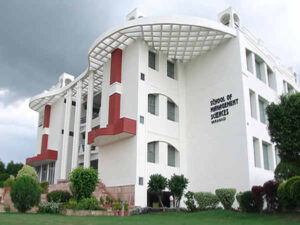In this article you will find Professional Certifications After M.Com. about 3,000 colleges in India offer Master of Commerce programs. M.Com graduates learn about accounting, commerce, economics, business administration, and management and often go into BFSI (Banking, Financial Services, and Insurance) careers. Here are 9 professional certifications which can really make your options after M.Com much more lucrative.
Accounting & Finance

M.Com graduates can significantly enhance their career prospects in Accounting and Finance by pursuing the professional certifications mentioned below. They equip graduates with specialised knowledge, practical skills, and most importantly – global recognition, which make them highly desirable candidates for employers.
1. Chartered Accountant (CA)
- About the Professional Certification: CA is a premier accounting designation in India, equipping graduates for a wide range of accounting and finance roles. It involves rigorous training and qualifies you for auditing, taxation, financial consultancy, and more.
- Why M.Com Graduates Should Pursue It: An M.Com degree provides a strong foundation in accounting principles and financial analysis, making it a perfect stepping stone for the CA program.
- How to Prepare for It: The Institute of Chartered Accountants of India (ICAI) conducts the CA exam in three stages. M.Com graduates may be exempt from some initial levels. Preparation involves enrolling in coaching institutes, referring to ICAI study material, and practising mock tests.
- Eligibility and Exam Format: A bachelor’s degree in commerce (B.Com) is the minimum eligibility. The CA exam format involves multiple-choice questions, theoretical questions, and practical case studies.
2. Certified Public Accountant (CPA)
- About the Professional Certification: A globally recognized designation, the CPA allows M.Com graduates to pursue international careers in accounting and auditing. Depending on the jurisdiction, specific requirements may vary.
- Why M.Com Graduates Should Pursue It: An M.Com degree strengthens your accounting knowledge, making you a competitive candidate for CPA programs offered by different countries (US CPA, Canadian CPA, etc.).
- How to Prepare for It: Examination and eligibility requirements vary by country. Generally, it involves passing a computer-based exam focusing on accounting, auditing, taxation, and business regulations.
- Eligibility and Exam Format: A bachelor’s degree in accounting is the standard requirement. The exam format typically consists of multiple-choice questions and simulations.
3. Association of Chartered Certified Accountants (ACCA)
- About the Professional Certification: ACCA is a globally respected accounting qualification valued by multinational corporations (MNCs). It offers a comprehensive curriculum covering various accounting, audit, and finance domains.
- Why M.Com Graduates Should Pursue It: A Master of Commerce specialisation in accounting or finance complements the ACCA program well. The combined qualification enhances your employability in MNCs worldwide.
- How to Prepare for It: The ACCA qualification is achieved through a combination of exams and practical experience requirements. You can enrol for self-study or opt for ACCA-accredited tuition providers.
- Eligibility and Exam Format: There’s no formal education prerequisite, but most candidates have a business or accounting background. The exams cover various areas like financial accounting, audit and assurance, taxation, and corporate law. The format includes computer-based assessments and case studies.
4. Certified Management Accountant (CMA)
- About the Professional Certification: The CMA certification hones your financial analysis and management accounting skills. It equips you to excel in strategic financial planning, cost management, and performance measurement.
- Why M.Com Graduates Should Pursue It: An M.Com degree, especially with a specialisation in finance or accounting, provides a strong base for the CMA program. The combined qualification strengthens your profile for management accounting roles.
- How to Prepare for It: The CMA certification involves passing two parts of a computer-based exam offered by the Institute of Management Accountants (IMA). You can utilize self-study resources, online courses, or CMA review providers.
- Eligibility and Exam Format: A bachelor’s degree is required, but an accounting background is not mandatory. The CMA exam format includes multiple-choice questions and essay-style constructed response items.
5. Chartered Financial Analyst (CFA)
- About the Professional Certification: The CFA program is a highly respected designation focusing on investment analysis and portfolio management. It opens doors to careers in asset management, wealth management, and investment banking.
- Why M.Com Graduates Should Pursue It: An M.Com degree in finance provides a solid foundation for the CFA program’s demanding curriculum. The CFA qualification combined with your M.Com elevates your profile in the investment management industry.
- How to Prepare for It: The CFA program involves passing three levels of rigorous exams offered by the CFA Institute. Extensive self-study, along with CFA exam preparation courses, are recommended.
- Eligibility and Exam Format: A bachelor’s degree is required, but there’s no specific major requirement. The CFA exam format consists of multiple-choice questions, constructed response questions, and case studies.
Business & Management

M.Com graduates seeking careers in Business and Management can leverage professional certifications like CS (Company Secretary) and MBA (Master in Business Administration) to stand out in a competitive job market. These programs go beyond the theoretical foundation of the Master of Commerce program by offering specialised skills and industry-specific knowledge.
6. Company Secretary (CS)
- About the Professional Certification: The CS course equips you to become a Company Secretary, a critical role in organizations. CS professionals ensure legal compliance, handle corporate governance matters, and advise boards of directors.
- Why M.Com Graduates Should Pursue It: An M.Com degree, especially with a specialization in corporate law or finance, complements the CS program well. The combined qualification strengthens your profile for becoming a company secretary.
- How to Prepare for It: The Institute of Company Secretaries of India (ICSI) conducts the CS course in three stages: Foundation, Executive, and Professional. You can enrol for coaching classes or utilize self-study materials provided by ICSI.
- Eligibility and Exam Format: Any graduate can register for the CS course. The exam format includes multiple-choice questions, theoretical questions, and case studies.
7. Master of Business Administration (MBA)
- About the Professional Degree Program: An MBA is a postgraduate degree program that broadens your business expertise across various domains like finance, marketing, human resources, and operations. It equips you for leadership roles in diverse industries.
- Why M.Com Graduates Should Pursue It: An M.Com degree provides a strong foundation in business and commerce principles. An MBA builds upon this knowledge and opens doors to a wider range of management careers.
- How to Prepare for It: Entrance exams like GMAT or GRE are usually required for admission to MBA programs abroad. In India, popular MBA entrance exams include CAT, MAT, CMAT, CUET-PG etc. You can prepare for these exams through coaching institutes or online resources. SMS Varanasi also offers an MBA program and you can explore it.
- Eligibility and Exam Format: A bachelor’s degree in any discipline is the basic eligibility for an MBA. The entrance exams typically involve multiple-choice questions on quantitative reasoning, verbal reasoning, and analytical writing skills.
Beyond Accounting & Finance

FRM (Financial Risk Management) and CFP (Certified Financial Planner) certifications empower you to explore exciting career options after M.Com beyond traditional accounting and finance roles. Let us discuss how:
8. Financial Risk Manager (FRM)
- About the Professional Certification: The FRM certification caters to professionals interested in risk management, particularly within the financial sector. It equips you to identify, assess, and manage financial risks like market risk, credit risk, and operational risk.
- Why M.Com Graduates Should Pursue It: An M.Com degree, especially with a specialization in finance or accounting, provides a strong foundation in financial concepts relevant to FRM. The certification enhances your profile for risk management roles in banks, financial institutions, and corporations.
- How to Prepare for It: The FRM program is offered by the Global Association of Risk Professionals (GARP). It involves passing a single, challenging exam offered twice a year. Self-study resources, online courses, and FRM exam preparation materials are available.
- Eligibility and Exam Format: There’s no formal education requirement, but a bachelor’s degree is recommended. The FRM exam format consists of multiple-choice questions covering various financial risk management aspects.
9. Certified Financial Planner (CFP)
- About the Professional Certification: The CFP program equips you with the skills and knowledge to provide comprehensive financial planning advice to individuals. The curriculum covers areas like retirement planning, investment management, tax planning, and estate planning.
- Why M.Com Graduates Should Pursue It: An M.Com degree, especially with a specialization in finance, provides a solid understanding of financial concepts relevant to CFP. The certification allows you to build a career as a financial advisor or planner, helping individuals achieve their financial goals.
- How to Prepare for It: The CFP program involves passing a computer-based exam offered by various certifying bodies depending on your location. You can prepare through self-study materials, online courses, or CFP exam preparation providers.
- Eligibility and Exam Format: A bachelor’s degree is typically required, but not always mandatory. The CFP exam format consists of multiple-choice questions covering various financial planning topics. In addition to passing the exam, you’ll also need to meet experience and ethics requirements.
If you are a student of the Master of Commerce program at SMS Varanasi and interested in pursuing these professional certifications, you have many resources to help you. Contact your professors to learn more!





